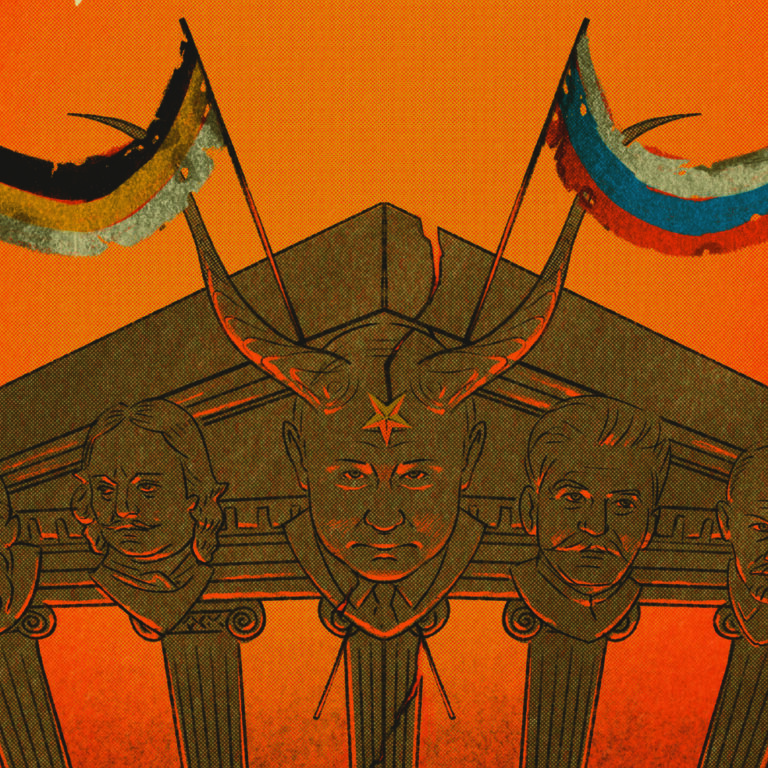
The war against Ukraine was not initiated by Putin personally. The war was started and is being waged by Russian imperial nationalism, with Putin and his accomplices as the figureheads.
Shortly after the occupation of Crimea, Putin admitted, “I am the biggest nationalist in Russia.” And then he added, “But the most right kind of nationalism is the construction of actions and policies in such a way that it is for the benefit of the people.”
Putin’s actions and policies demonstrate that he sees the good of the Russian people in conquering neighbouring nations and seizing foreign territories. The massive support of the aggression against Ukraine in Russia proved that a large part of Russian society fully shares Putin’s view of the public good. This understanding of national interests is the essence of imperial nationalism – the dominant ideology of modern Russia.
Editor's note
This story is a part of the partner project between Ukraїner and Local History.Russian imperial nationalism arose in the 19th century. It managed to survive tsarism, communism, attempts at liberalisation and the Putin era. It took on different forms, but the five pillars on which it has rested almost always remained unchanged. These include Imperialism, Samoderzhavie (Autocracy), Hostility to the West, Messianism, and Ukrainophobia.
Imperialism
This is how Encyclopaedia Britannica defines imperialism:
– The governmental policy, practice, or advocacy of the expansion of power and domination, especially through direct territorial annexation or the acquisition of political and economic control over other territories.
Imperialism has been a characteristic of the Russian state from its inception to the present day. Its product was the formation of Russia in the 19th century as an imperial nation.
The collapse of the empire in 1917-1918 did not destroy imperialism. It was reborn as a state policy in the Stalinist USSR, which was also an empire by its very nature. The collapse of the Soviet Union did not destroy it either. Moreover, after a temporary retreat in 1989–1999 under Putin, Russian imperialism went on the offensive again, culminating in the war against Ukraine.
Today, Russian imperialism is a threat not only to Ukraine but also to the whole world.
Samoderzhavie (Autocracy)
“Samoderzhavie” in Russian corresponds to the ancient Greek term “autocracy”. Samoderzhavie is a Russian form of autocracy – a political regime based on the unlimited power of one person.
The peculiarity of Russian autocracy compared to other forms of it is its deep rootedness in the mentality and political culture of Russians. In their inclination to believe in a “good tsar”, it does not matter whether he is called “sovereign and autocrat of all Russia”, “all-Russian emperor”, “general secretary”, or “president of the Russian Federation”.
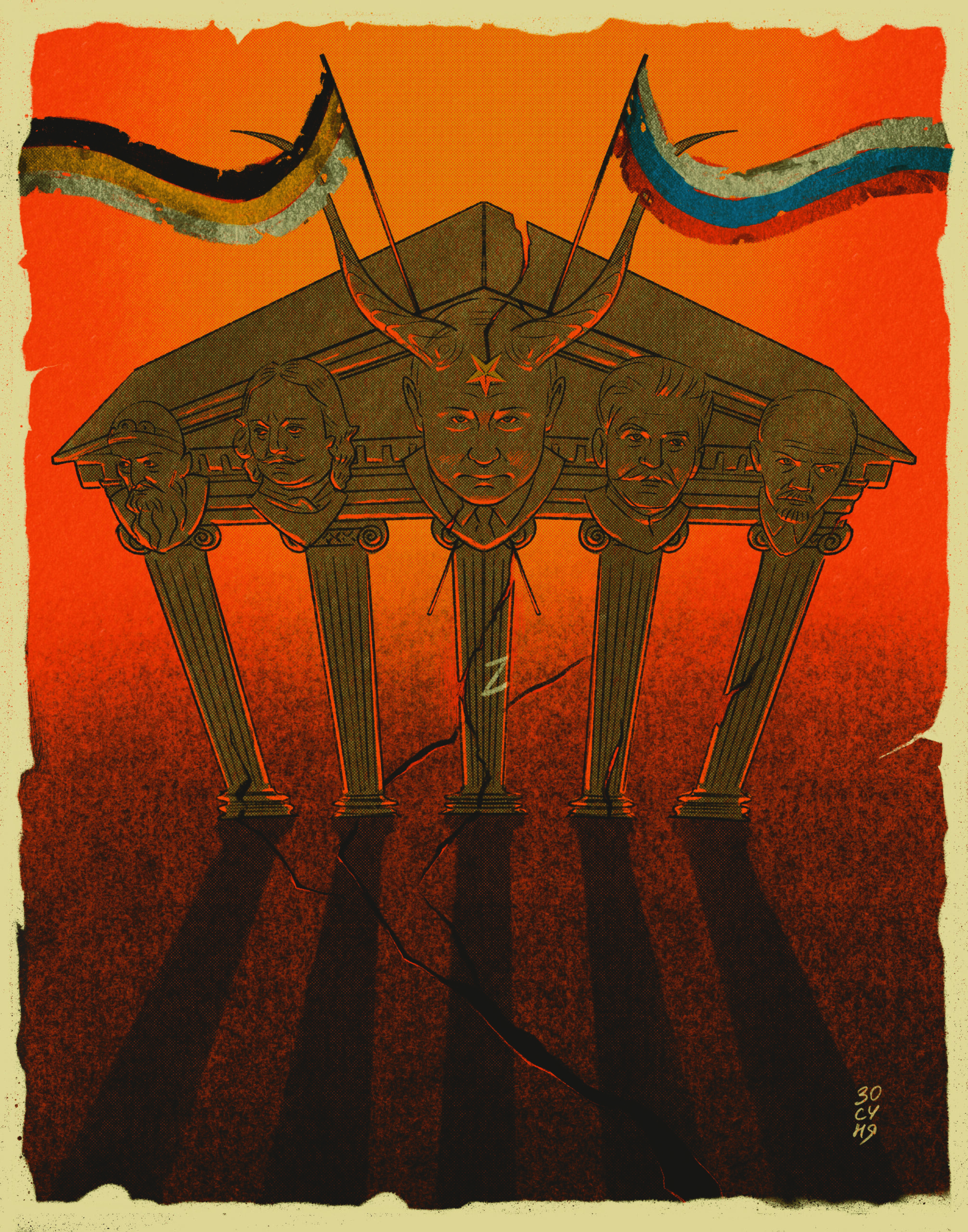
The modern form of Russian autocracy is Putinism. No wonder Putin’s rule is often compared to the reign of Emperor Nicholas I. This analogy is very encouraging, because the reign of this tsar ended in military defeat, which the autocrat could not survive.
In recent years, Putin is often compared to another autocrat – Hitler, and the Kremlin regime itself is called fascist. Indeed, the current system in the Russian Federation is the heir not only of the Russian autocratic tradition – tsarism and Stalinism – but also of the tradition of European fascism. And even more – Hitlerism.
Is there any hope that Russia will one day eliminate autocracy and become a democratic state? Democracy is impossible in Russia. Not now, not in the future… Either Russia or democracy,” Vadym Kirpichev, one of the most outspoken Putinists, insists.
However, Russia has nevertheless started a movement towards democracy already three times in recent history. Consider the first and second Russian revolutions, as well as perestroika (a political movement for reform within the Communist Party of the Soviet Union during the late 1980s – tr.). Each time it ended in a retreat to authoritarianism – the Stolypin reaction, the Bolshevik dictatorship and, finally, the oligarchy of the 1990s, which gave rise to Putinism. Let’s also keep in mind that all major reforms and revolutions in Russia began after lost wars. Therefore, the defeat of the Russian Federation in the current war may be a new chance for Russian democracy.
Hostility to the West
Any authoritarian nationalism needs the image of an enemy that supposedly threatens the nation. For the Russian imperial project, the traditional opponents were the West, Ukraine, and the Jews. The “Jewish threat” is no longer considered relevant in the official discourse, although it can sometimes seep through into the rhetoric of the head of Russian diplomacy. At the same time, it is still widespread in unofficial circulation. However, hostility towards the West and Ukraine has grown to unprecedented proportions.
Russian antipathy to the West dates back to at least the 16th century. And it acquired an ideological form in the imperial nationalism of the 19th century. The Polish uprising of 1830–1831 became a kind of Rubicon, which caused mass sympathy for the Poles in Europe and an outbreak of anti-Russian sentiments. Both the tsar and a large part of the Russian intellectual elite perceived this as a threat to the empire.
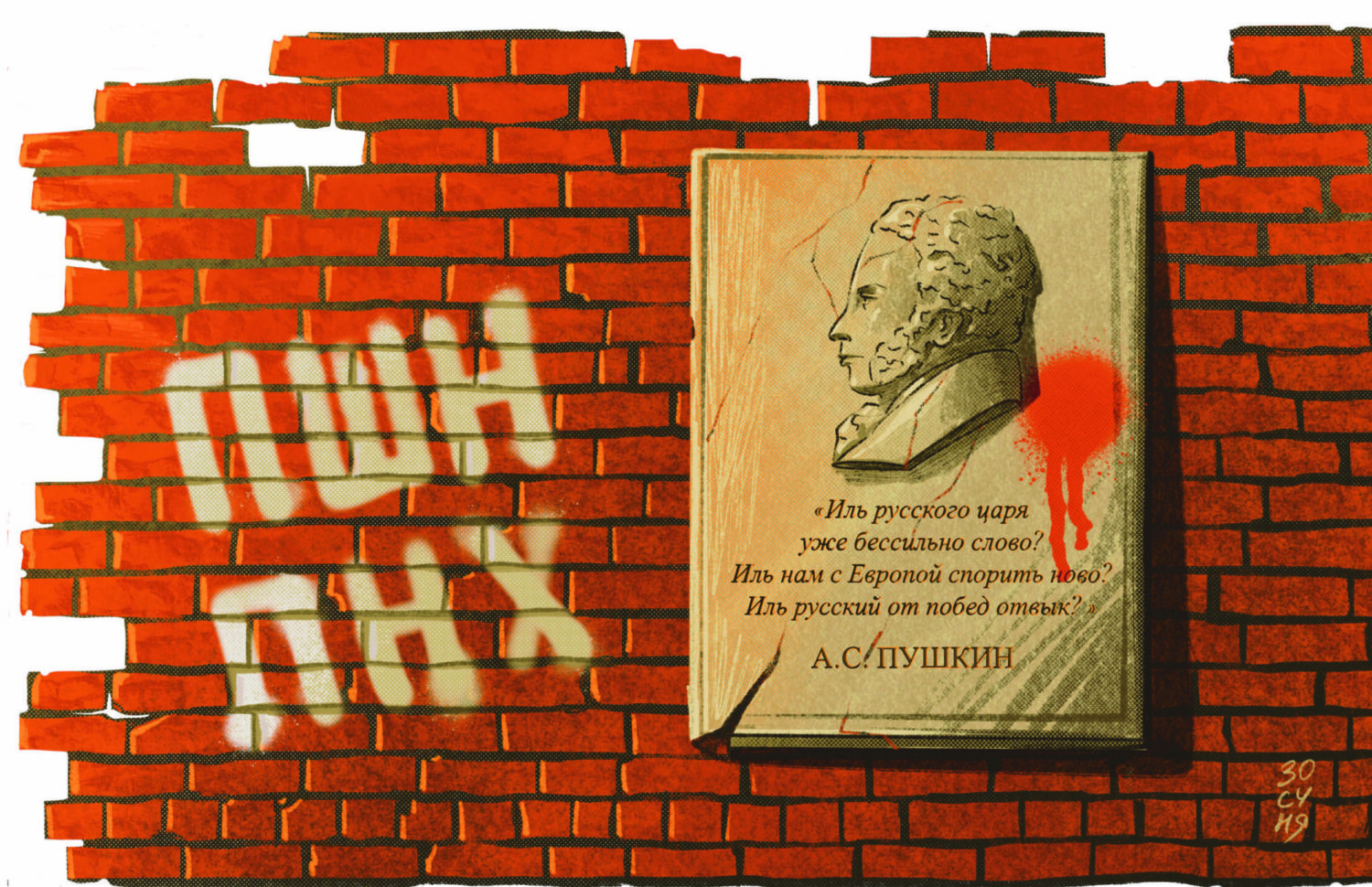
A monument of Alexandr Pushkin with his poem, “Is the word of the Russian tsar powerless? Do we need to fight with Europe again? Or has the Russian man forgot how to win?”
Aleksandr Pushkin, who in his youth was a friend of the Decembrists and the author of freedom-loving poems, wrote about the Polish insurgents: “In the end, they must be strangled.” And in a letter to the head of the gendarmes, Aleksandr Benkendorf, he was furious: “Enraged Europe is attacking Russia so far not with weapons, but with daily, rabid slanders.” The crown of the poet’s indignation against liberal Europe was the poem “To the Slanderers of Russia” – the first poetic manifesto of Russian imperial nationalism, with which Pushkin earned the “highest” approval of Nicholas I. And the scorn of his former friend Adam Mickiewicz (“Do przyjaciół Moskali” – “To the Muscovites’ friends”, a poem from Dziady).
Almost two centuries later, the servility of some Russian “intellectuals” has not changed. They curry favour with the newest autocrat and also call to “stifle” unruly neighbours. They threaten Europe, however, not with the millions of bayonets, but with nuclear weapons.
Be that as it may, the dream of an empire that would float over the ruins of the West with an “Ark of Covenant” (as Fedor Tiutchev dreamed) never came true. The Crimean War of 1853–1856 also demonstrated the backwardness and powerlessness of Russia in the confrontation with the Western enemy. And subsequent conflicts, in which the West acted in solidarity, confirmed the inability of the Russians to win in the clash of civilizations.
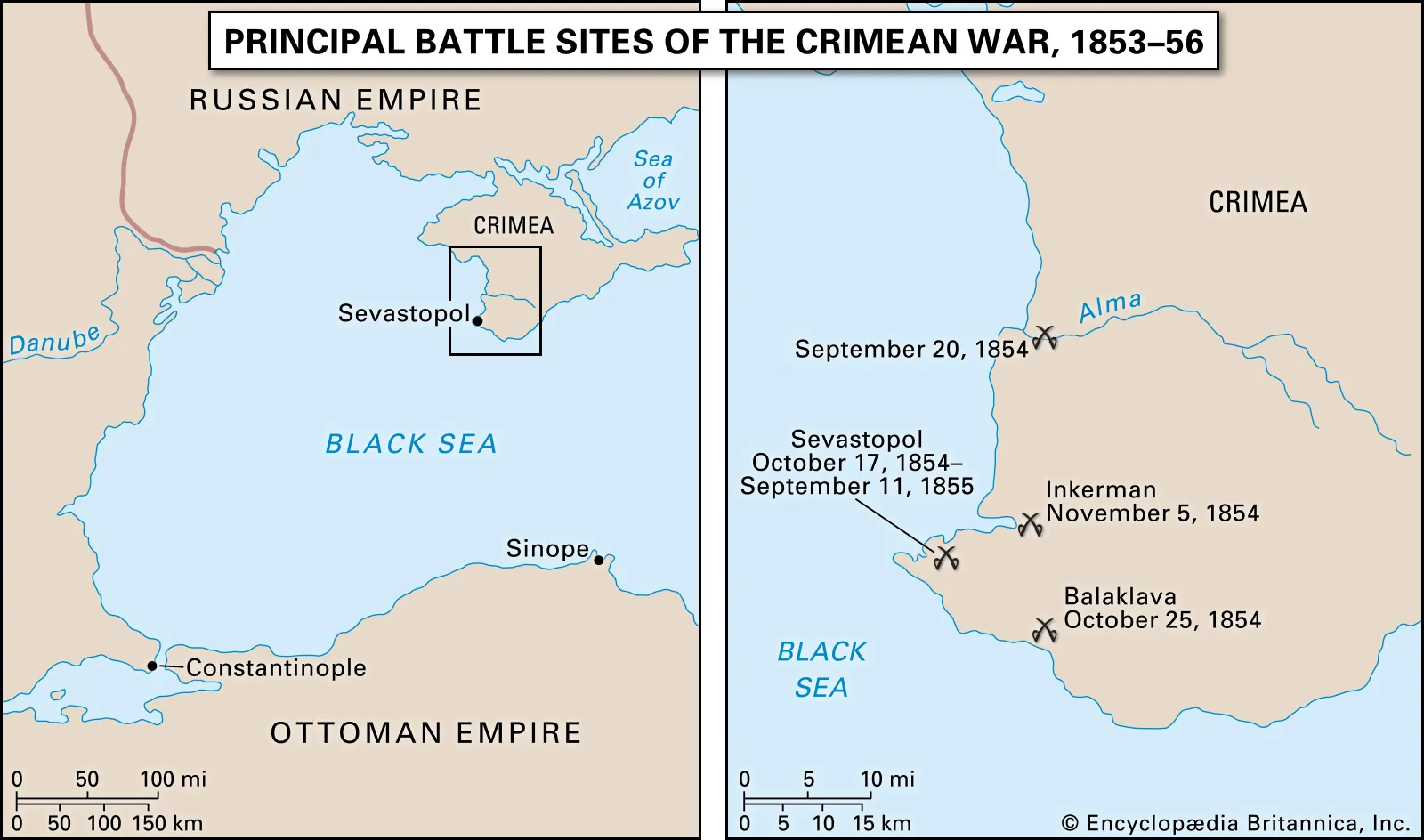
The map of the Crimean War. Source: Encyclopedia Britannica
Resentment, formed in the confrontation with the West, became a fertile ground for Russian imperial nationalism. This gives rise to the grievance, bitterness against the perceived perpetrators of their failures, a desire for revanche or revenge… From the defeat in the Crimean War to the expansion of NATO, Russian failures in conflicts with the West strengthened collective resentment and encouraged the growth of a compensatory cult of imperial greatness in Russia. We are witnessing its new outbreak today.
Messianism
Russian imperial nationalism proved unable to defeat the West either by military action or economic competition, so it resorted to the idea of Russian messianism. It claims: “Although technically and economically we, Russians, are inferior to the West, we possess a higher spiritual truth we must bring to the world.”
What “higher truth” could Russia offer humanity? In this matter, we observe a strange convergence of the opinions of the local left and right intellectuals. According to their vision, the Russian people are called to create a new civilization, ending the dominance of the “decaying” West.
Anarchist and revolutionary populist Mikhail Bakunin wrote about the Russian people:
– We believe in its future, hoping that it, free from deep-rooted superstitions transformed into law in the West: religious, political, legal and social, will introduce new beginnings into history and create another civilization; and a new faith, and a new law, and a new life.”
He was echoed by the religious-conservative thinker Konstantin Leontiev, “Russia, which is to become the head of some new Eastern statehood, must also give the world a new culture, replace the vanished civilization of Romano-Germanic Europe with this new Slavic-Eastern civilization.”
Later, the banner of messianism was picked up by the Bolsheviks. This “higher truth” underwent several transformations in the communist editorial office. Russia was “the stronghold of the world revolution”, “the first country of victorious socialism”, “liberator of Europe from fascism”, “struggle against colonialism and neo-colonialism”, and finally, “guarantor of world peace.” However, Soviet messianism declined along with the political religion of that time, and towards the end of the USSR’s existence, it turned into demagoguery, which no one believed.
Today we see pathetic attempts to revive the Russian messianic idea. The imperial nationalists are once again going to liberate and save everyone: Donbas from Ukraine, Ukraine from “Nazism”, humanity from the domination of the West, the West from the domination of the USA. Russian messianism has finally turned into camouflage to cover up bare imperialism.
Ukrainophobia
At the very core of imperial nationalism lies hostility to national movements that threaten the dominance of the dominant nation and the very existence of the empire. From the point of view of the Russian emperor, the main danger was the Ukrainian national movement.
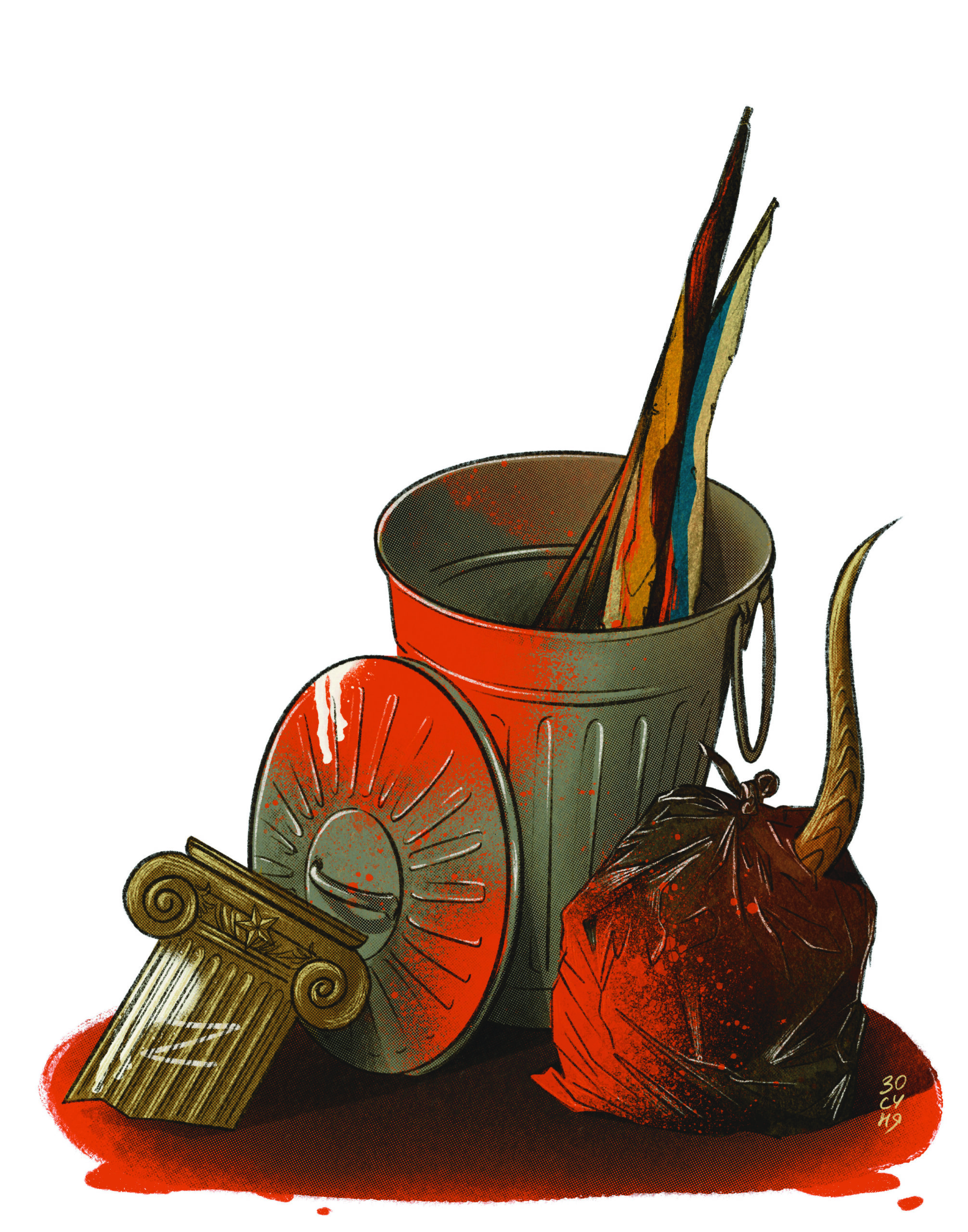
The imperial nationalists could somehow come to terms with the loss of Poland, but it was unthinkable for them to imagine the Russian Empire without Ukraine. Therefore, they made every effort to stifle the Ukrainian movement at its origins, even before it strengthened and began to put forward political goals. They failed. The Ukrainian national project emerged as the winner in the competition with the imperial construct of the “triune” Russian nation.
The imperial nationalists created a myth that Ukraine and the Ukrainian nation were invented by the enemies of Russia – Poles, Austrians, Germans. And finally, Lenin and the Bolsheviks. This thesis was adopted by Putin in the article “On the Historical Unity of Russians and Ukrainians,” where he denied the historical grounds for the existence of the Ukrainian nation and state. Putin saw that once enemies and the Bolsheviks artificially created Ukraine, and now other enemies are turning it into “anti-Russia.” They claim that Moscow will never come to terms with this. Even at that time, far-sighted analysts pointed out that the article was an ideological justification for the future war. However, few people believed it then.
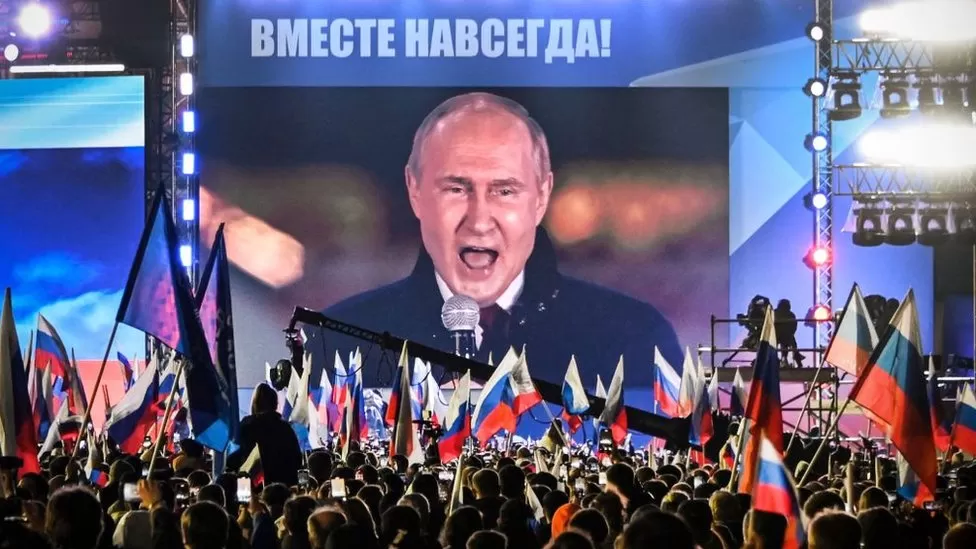
Vladimir Putin celebrating occupation of the Ukrainian territory: "Together forever" is written at the top of the screen. Source: Getty Images
In April, during the Russian invasion, the RIA Novosti agency published an article by Timofey Sergeytsev titled “What Should Russia Do with Ukraine?”. This text became the crown of Russian Ukrainophobia. The national resistance of Ukrainians convinced the author that most of the people in Ukraine were “mastered and drawn into its policies by the Nazi regime”, and therefore “denazification” must inevitably become “de-Ukrainization.”
Sergeytsev’s plan for “denazification” involves the physical extermination of Ukrainians who defend the state with weapons in their hands, the elimination of the “Bandera elite”, and the punishment of the rest of the population for supporting the “Nazi government.” Ukraine must cease to exist as a national state, and the name “Ukraine” must disappear. According to his claims, Ukraine’s territory should be divided into “people’s republics”. All parts – apart from the Catholic West – must be integrated into “Russian civilization.”
Such essays could be ignored as the delusions of madmen if it were not for the fact that these texts are published by a Russian state agency, and their content coincides with the real actions of the Russian occupiers in Ukraine.
Ukrainophobia of the imperial nationalists reached a genocidal level. Ukraine faces a terrible enemy that threatens the existence of the Ukrainian nation and state. It is impossible to conclude an agreement on peaceful coexistence with Russian imperial nationalism. Only its complete collapse and replacement by “normal” nationalism, which focuses on modernising the state and not on oppressing neighbouring nations and seizing foreign territories, can change Russia.
There’s no place for Russian imperial nationalism in the 21st century.

